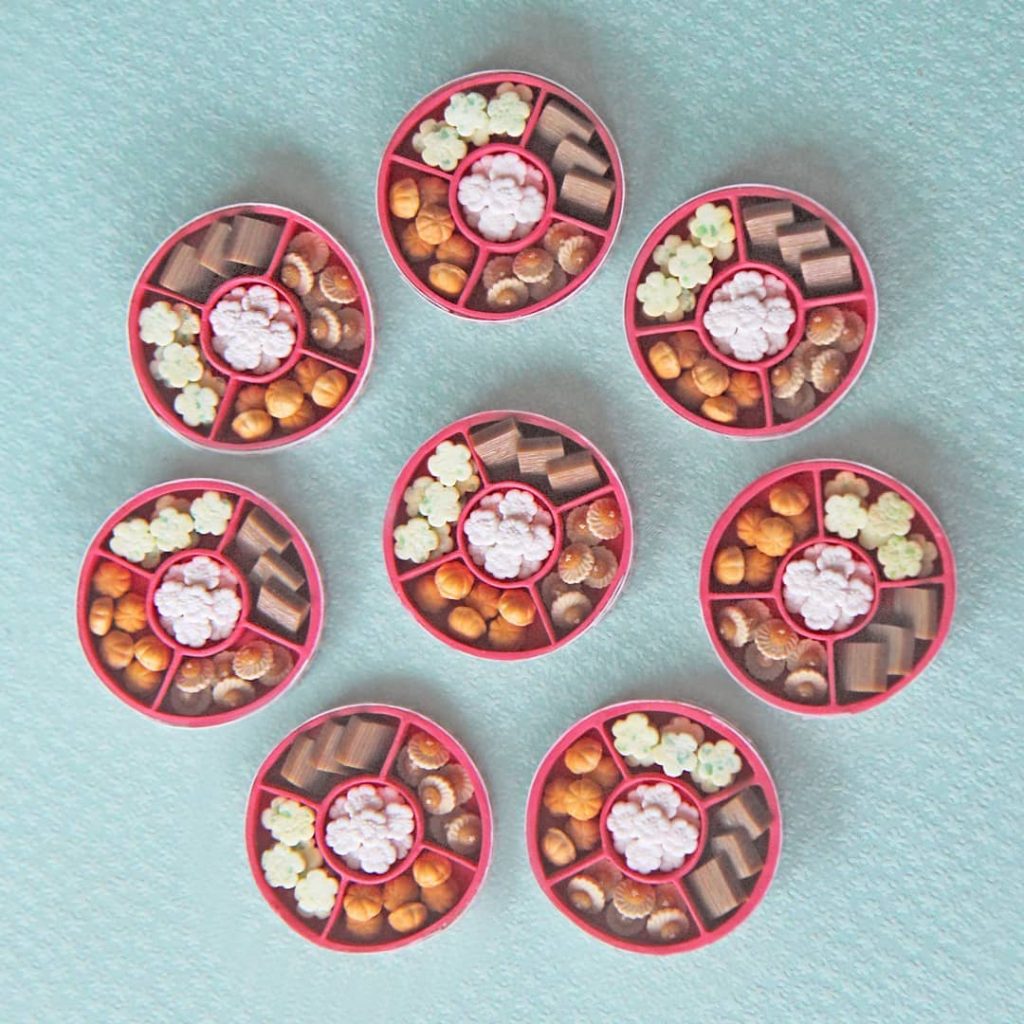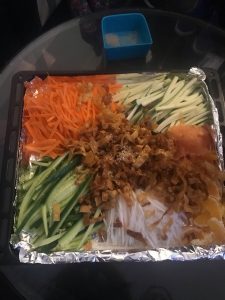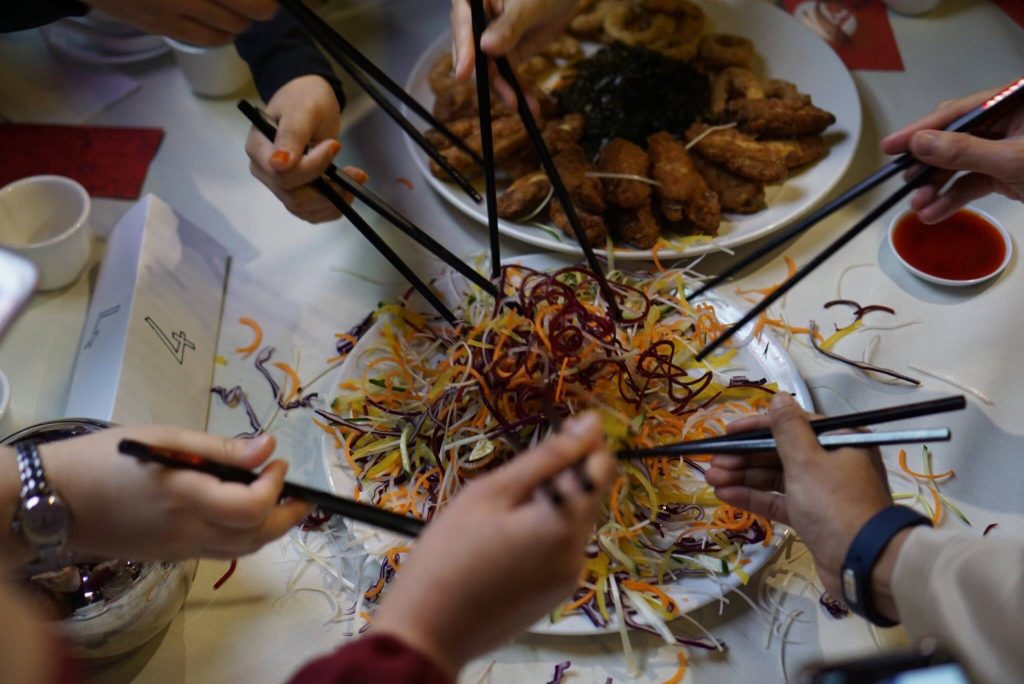Contributed by Ning Lee (Nicolette)

Lunar or Chinese New Year is a 15-day festival celebrated in many countries around the world, such as China, Singapore, Malaysia, and even the US and the UK! The festival welcomes the new year of the Lunar Calendar, which was traditionally used prior to the popularisation of the Gregorian calendar.
In Malaysia, where I grew up, you always know Lunar New year is around the corner because Lunar New Year songs, videos, and decorations are present everywhere. Shopping centres, radio channels, TV advertisements, you name it. The loud and joyful songs prompted many of us to sing and dance along as children, and as adults it always brought a sense of cheer.

Food has always been a focal point in Malaysia due to the variety of scrumptious foods available. This is influenced by migration to the country, and the adoption of local cultures over the course of the last few centuries; because of this, Lunar New Year food found in Malaysia may differ greatly from those in China. When celebrating Lunar New year in Malaysia and Singapore, a dish called Yee Sang (鱼生), or Prosperity Toss is commonly consumed. It is made up of different types of vegetables, raw salmon (or smoked salmon), crunchy crisps and a sweet, yet tangy, sauce.
Symbolisms and homonyms (similar sounding words with different meanings) are popular in Chinese culture and are especially abundant in Lunar New Year culture. The fish is an important part of Yee Sang as it represents excess wealth in the coming New Year. This is because fish, or 鱼 (yu) sounds similar to 年年有余 (nian nian you yu), which “means may there be surplus every year”.
Tossing the dish is the best part of the dinner. This requires a joint effort from everyone using their chopsticks. We believe the higher the dish is tossed, the better your luck the coming year will bring. Auspicious phrases and wishes are also said when tossing to express well wishes for the New Year. After tossing the dish, it is quite common for it to look like the remnants of a battlefield as pieces of vegetables tend to fly out of the plate—a lively experience.

Lunar New Year cookies / biscuits and snacks are also a common sight during this festive season, with most households stocking up on them. They come in dozens of varieties, from peanut butter cookies to arrowhead chips (Ngaku), each as addictive as the other. Given the shape and textures of these foods, it’s not surprising that, after the festival, those celebrating often end up with a sore throat.
On a healthier note, mandarin oranges are also often gifted during the Lunar New Year. This is because in Cantonese mandarin oranges are called ‘kam’, which sounds like the word gold. The orange colour is also a sign of prosperity and good luck, thus adding to the symbolism. Tradition dictates that they are to be gifted in pairs as only giving one mandarin orange to the receiver means wishing him or her “loneliness”. They are also to be presented with both hands as a sign of respect.
As you can see, food is an inseparable part of the Lunar New Year Culture in Malaysia. It is most important to enjoy the food, and also your time with family members during this festive season. I wish everyone a very happy and prosperous Lunar New Year!

P.S. To make your own Yee Sang, have a look at the recipes below:
https://www.malaysianchinesekitchen.com/yee-sang-prosperity-toss-salad/
https://www.nyonyacooking.com/recipes/yu-sheng-prosperity-raw-fish-salad~rk-AwvoDf5ZQ
Also, for more examples of Lunar New Year cookies/biscuits and snacks check out the following websites:
https://junandtonic.com/blog/2018/2/12/eight-dishes-for-a-very-malaysian-chinese-new-year
https://productnation.co/my/eats/food/5769/chinese-new-year-cookies-buy-online-malaysia/
https://giant.sg/12-easy-chinese-new-year-snacks-and-cookie-recipes-to-make/
